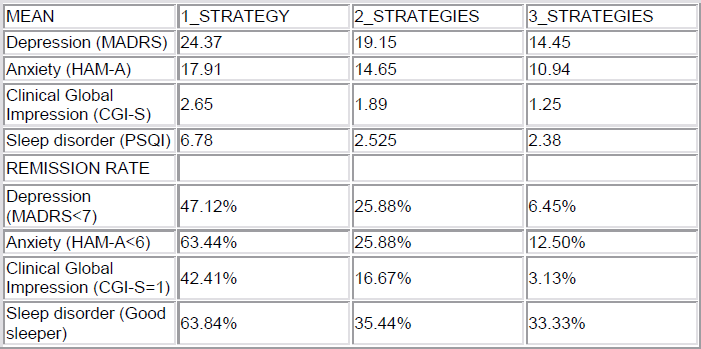No CrossRef data available.
Article contents
Impact of the number of changes of therapeutic strategy on improvement in depressed patients. dria study
Published online by Cambridge University Press: 16 April 2020
Abstract
The STAR*D is a pragmatic clinical trial that showed lower remission rate and higher relapse rate when more strategies were used.[1]
Assess clinical improvement in symptoms related to depression, anxiety and sleep, based on the number of strategies used.
Descriptive, non-interventional, prospective study including outpatients diagnosed with Major Depressive Disorder (MDD) with sub-optimal response to standard antidepressants. In those patients a change on the therapeutic strategy (switch of antidepressant, combination of antidepressants, augmentation or a combination of previous strategies) had to be considered necessary. Follow-up period was 22–26 weeks.
364 patients were included by 58 psychiatrists, 336 were analyzed (92.3%) and 315 (86.5%) completed the follow-up.
[Difference last visit vs. basal]

p < 0.0001 in all measures
The more changes on strategies used the less improvement on clinical symptoms and remission rates.
This study has been sponsored by AstraZeneca Farmaceutica Spain, SA.
- Type
- P02-104
- Information
- European Psychiatry , Volume 26 , Issue S2: Abstracts of the 19th European Congress of Psychiatry , March 2011 , pp. 700
- Copyright
- Copyright © European Psychiatric Association 2011





Comments
No Comments have been published for this article.